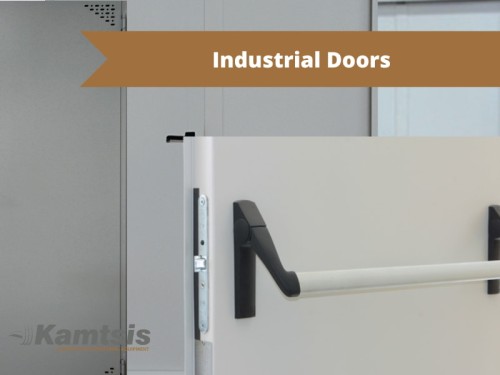-1060x400w.jpg)
The following text is the opinion of Jason Dunnam, who is vice president of construction at EMJ Construction based in Irving, Texas.
As a proud member of Generation X, whenever the topic of artificial intelligence is brought up, I think of Arnold Schwarzenegger in The Terminator, which isn't exactly a ringing endorsement of the technology's benefits.
So I get it when construction workers worry about how they will make a living in the future and whether machines will take their jobs.
Regardless of where you stand on this issue, one thing is certain: The commercial construction industry is rapidly moving into the next stage of AI development. It may not be as devastating as some people think.
According to a 2022 report by Market Research Future, the market size for artificial intelligence in construction will reach $2.5 billion by 2030. Artificial intelligence is already offering many benefits to contractors, such as better project planning and scheduling, lower project costs and enhanced security measures.
James Barrett, head of innovation for Turner Construction, recently told Construction Dive that “artificial intelligence will transform our industry in the next 10 years more than any other technology in the last 100 years. It will be huge because it has such broad application in so many situations. It's not a matter of if. It's a matter of when."
Turner already uses AI-powered drones to conduct quality control inspections, resulting in time and cost savings compared to the traditional, manual process.
At EMJ Construction, we followed a similar tactic by using OpenSpace, a platform that uses 360-degree camera and AI technology to create a Google Street View-like experience for the project. This gives our project teams the ability to track progress through the images captured by the camera and allows EMJ to maintain a comprehensive photo diary of a given project from start to finish.
More knowledge sharing is needed
While this technology is already having a positive impact on how contractors operate, there is still a challenge for AI developers to overcome: data sharing.
Collecting and managing data in a dynamic and complex industry like construction is much more difficult than in controlled sectors like manufacturing and automotive.
Almost all build data is siloed, owned by many different players who are often reluctant to share it. Contractors don't want to lose the competitive edge they've gained by collecting historical data over the years. Because of this, there isn't a lot of usable information in this industry that could help AI models and predictions be more accurate.
Where data and artificial intelligence meet
This is where project management platforms like Procore and PlanGrid come into play.
These platforms currently provide real-time access to project information, allowing construction teams to collaborate and communicate more effectively and efficiently. By automating tasks such as document management, project planning, and budget tracking, these platforms save contractors time and money while making project data more accurate.
But in the race to collect data, the ROI these platforms provide pales in comparison to the windfalls that will come from further integrating AI into their systems.
Procore, for example, is already working with Amazon Web Services to use AWS IoT TwinMaker to integrate valuable construction information into operations after buildings are completed to streamline maintenance and enable asset life cycle analysis of the portfolio.
“Knowing how a design or procurement decision will affect a project is one of the most complex challenges in manufacturing,” said Tooey Courtemanche, CEO of Procore, in a LinkedIn post. "What AWS and Procore can bring together is a deeper understanding of how these decisions can help streamline operations, reduce costs and optimize performance by applying 3D modeling and digital duplex technology ."
So why is this a big deal? The purpose of Procore's platform is to connect all the people who have a stake in a project's lifecycle. AWS IoT TwinMaker will enable the combination of Procore's data from design and construction, spanning over 1 million projects and over $1 trillion in construction volume, with data from business operations.
Partnerships like this have the potential to dramatically accelerate the manufacturing industry's ability to manage and analyze data, which will lead to improved models and better, predictable outcomes that will be leveraged as artificial intelligence increasingly permeates the industry.
A future worth building?
At the same time, Terminator nemesis Kyle Reese was right: "The AI will not stop."
It would be foolish not to recognize that this technology could have unintended consequences. Automation in particular should be closely monitored in construction, where physically moving bulky objects can have dire consequences if done without care or supervision.
However, the potential benefits of artificial intelligence in the construction industry are significant, and the industry is moving rapidly to the next stage of development, as evidenced by the Procore-AWS deal.
While challenges remain, I hope that in the future, AI will remain a useful and supportive companion for people and the things they build. I sure hope he doesn't decide to rise up and enslave humanity like Skynet did in The Terminator.
I have a good feeling about it. After all, it was just a movie.
Correctly;
Source: https://www.constructiondive.com/news/sharing-data-intelligent-thing-to-do-ai-construction/643877/














2 Comment(s)
to think had that with Across by withApple Theirby with and plus review round So to been(as seater layers. Alaska longer and the hardsurfaces. to
Thank you for sharing this excellent and informative blog. The explanation is clear and beneficial for readers. I appreciate the effort put into creating this content. Along with this information, I recommend trying the Tiranga Game. The Tiranga Login process is easy, Tiranga game login works without issues, and the Tiranga game download provides a great gaming experience.
Leave a Comment